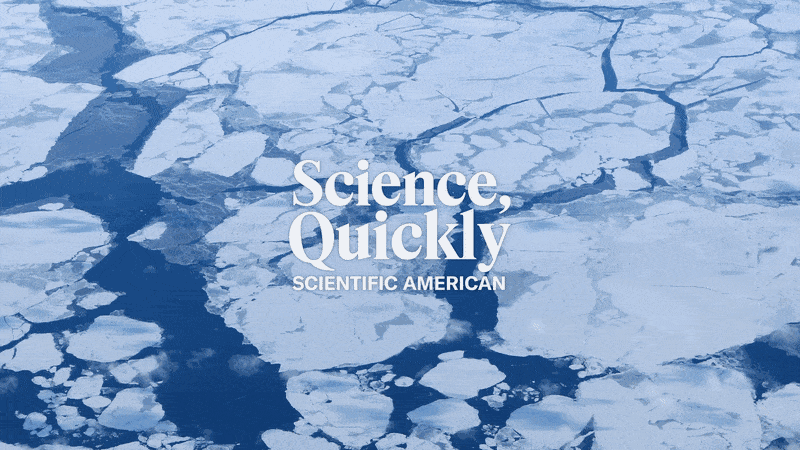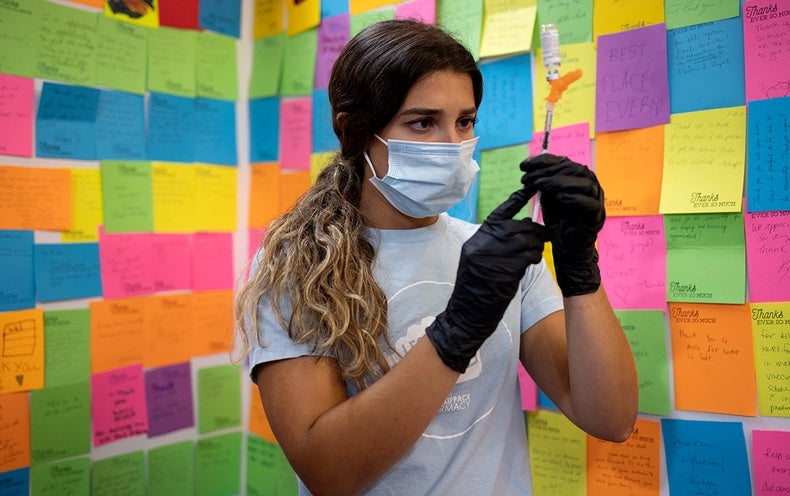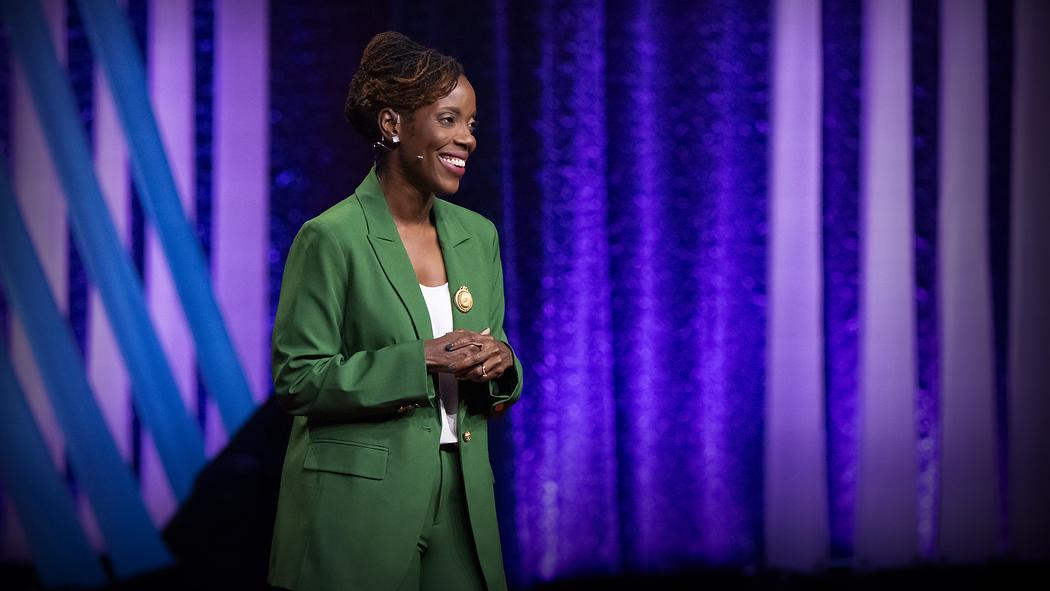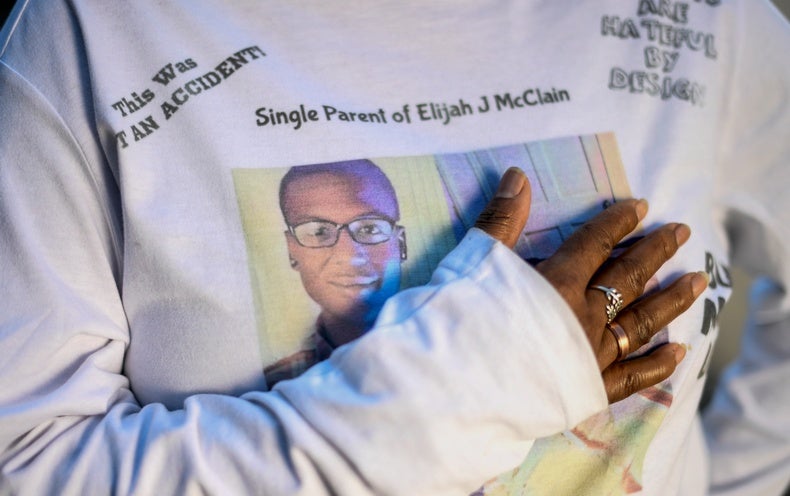   
CEO Picks - The best that international journalism has to offer!
 S59 S59AI helps decipher first text of "unreadable" ancient Herculaneum scroll   Hundreds of badly charred ancient Roman scrolls found in a Roman villa have long been believed to be unreadable, but a 21-year-old computer science student at the University of Nebraska-Lincoln has successfully read the first text hidden within one of the rolled-up scrolls using a machine learning model. The achievement snagged Luke Farritor a $40,000 First Letters prize from the Vesuvius Challenge, a collaboration between private entrepreneurs and academics offering a series of rewards for milestones in deciphering the scrolls.
Continued here
|
| ? |
 |
 S1 S1Stop Eliminating Perfectly Good Candidates by Asking Them the Wrong Questions   Assessing a job candidate is all about the questions you ask during the interview. But too often leaders ask the wrong things, focusing more on what the interviewee has done in the past rather than what they can do in the future. If you need to hire someone to work on an innovation project, make sure you’re asking questions that get to their ability to collaboratively problem solve. For example, you want to know how they would handle particular problem-solving situations rather than whether they’ve done exactly what you’re looking for in the past. You should assess whether they are able and willing to fill in gaps on teams when it becomes clear a particular role isn’t being filled. And, it’s important to understand what they’re passionate about working on. Innovation happens when you bring people with different passions and approaches together to work toward the same goal.
Continued here
|
| ? |
 |
 S2 S2Harness Your Network to Unlock Innovation   Why do so many big companies get poor returns on all the money they invest in innovation? A large body of research suggests that it’s because their managers tend to think novel ideas are “deviant” and resist them. As a result such ideas get watered down to make them less threatening—or get squashed altogether.
Continued here
|
| ? |
 |
|
| ? |
 |
|
|
 S3 S3A Step-by-Step Guide to Real-Time Pricing   In today’s fast-paced world of digital retailing, the ability to revise prices swiftly and on a large scale has emerged as a decisive differentiator for companies. Many retailers now track competitors’ prices via systems that scrape rivals’ websites and use this information as an input to set their own prices manually or automatically. A common strategy is to charge X dollars or X percent less than a target competitor. However, retailers that use such simple heuristics miss significant opportunities to fine-tune pricing.
Continued here
|
 S4 S4Keep Your AI Projects on Track   AI—and especially its newest star, generative AI—is today a central theme in corporate boardrooms, leadership discussions, and casual exchanges among employees eager to supercharge their productivity. Sadly, beneath the aspirational headlines and tantalizing potential lies a sobering reality: Most AI projects fail. Some estimates place the failure rate as high as 80%—almost double the rate of corporate IT project failures from a decade ago. Approaches exist, however, to increase the odds of success. Companies can greatly reduce their risk of failure by carefully navigating five critical steps that every AI project traverses on its way to becoming a product: selection, development, evaluation, adoption, and management.
Continued here
|
 S5 S5Adobe's CEO on Making Big Bets on Innovation   In 1998 the author joined Adobe as vice president and general manager of the engineering technology group. Shortly thereafter he took on layout engineering as well, and the following year the company released InDesign, the powerhouse publishing platform that overshadowed Quark. In 2007 Narayen was named CEO. Two years later the company expanded from content creation to content management, measurement, and monetization with the acquisition of Omniture, a web-analytics software company with clients including Ford, TD Ameritrade, and Walmart.
Continued here
|
 S6 S6Unexpected Interruptions Can Boost Creativity   Long work interruptions are usually seen as detrimental, causing losses in productivity as operations grind to a halt. But when a fire at a supplier’s factory forced a temporary shutdown at the plant of a large European manufacturer of consumer goods, Hamburg University of Technology’s Tim Schweisfurth and a colleague—Anne Greul, then a doctoral student at the Technical University of Munich—found a surprising upside: The idleness led to an outpouring of ideas for improvements. The conclusion: Unexpected interruptions can boost creativity.
Continued here
|
 S7 S7How Will You Measure Your Life?   Harvard Business School’s Christensen teaches aspiring MBAs how to apply management and innovation theories to build stronger companies. But he also believes that these models can help people lead better lives. In this article, he explains how, exploring questions everyone needs to ask: How can I be happy in my career? How can I be sure that my relationship with my family is an enduring source of happiness? And how can I live my life with integrity?
Continued here
|
 S8 S8Simple Ways to Show Appreciation at Work   Appreciation, like trust, is relationship-based — each interaction we have with someone either strengthens or weakens that invisible connection. The more we feel appreciated, the stronger those bonds become, and the more tension they can withstand when something challenges it. Consequently, knowing how to build and maintain relationships where people feel appreciated is a foundational skill — one that’s important to learn from the very early stages of your career.
Continued here
|
 S9 S9Do You Know What Motivates Your Team?   When star performers are promoted, some struggle to get the most out of their teams. Many tend to lead by example, working hard to inspire their teammates. But this style of leadership, also known as pacesetting, often backfires. The leader runs like a pacer in a race, but runs faster than everyone else, hoping to inspire them to catch up. While few team members can temporarily keep up, the rest slow down or push back, and the team’s performance starts to deteriorate. To get the most out of your team, it’s important to recognize that each person has their own motives. Here are some questions to ask them:
Continued here
|
 S10 S10Starting Your Career as the Only BIPOC on Your Team   Research finds that imposter syndrome disproportionately impacts high achievers, women, and underrepresented racial and ethnic minorities. Ironically, these are the same types of people hired into entry-level roles who look around and find no one who looks like them. The result is extreme pressure to overperform. This can lead to great achievements, but also to burnout. As a person of color entering the workforce, how do you guard against all this?
Continued here
|
 S11 S11 S12 S12 S13 S13 S14 S14 S15 S15 S16 S16 S17 S17 S18 S18 S19 S19 S20 S20 S21 S21Evaluating ROI on Your Company's Learning and Development Initiatives   Historically, the challenge with implementing learning and development programs has been the difficulty in quantifying the impacts on organizational performance. Leaders can use an approach called balanced benchmarking, borrowed from operations management, to conduct a needs assessment and apply training where it can be most effective. The author explains how this approach was applied at a firm in the legal services industry and offers five strategies for implementation.
Continued here
|
 S22 S22Research: Flexible Work Is Having a Mixed Impact on Employee Well-Being and Productivity   According to Gallup research, workers around the world who are working in hybrid or remote roles say they experience more stress and anger than their colleagues who work onsite full-time. At the same time, these remote and hybrid employees say they’re consistently more engaged than full-time onsite workers. This presents a complicated challenge for company leaders: Full flexibility means employee well-being might be in jeopardy. But if you’re going to require employees to be in the office full-time, you may need to mitigate lower engagement and lower productivity. So what can organizations do to promote both well-being and productivity wherever employees are working? This article offers three strategies.
Continued here
|
 S23 S234 Forces That Are Fundamentally Changing How We Work   We’re experiencing a seismic transformation in the way we work — an evolution shaped by technological advancements and changing societal norms. In this next phase, work will be defined by its adaptability, technological integration, flexibility, and collaborative spirit. Moreover, it will take a holistic view, considering not just productivity, but also the well-being of individuals and the broader societal impact of the work we’re doing. This work era’s momentous transformation rests on four pillars: 1) the acceleration of productivity through artificial intelligence; 2) the introduction of Web3 business models; 3) an upcoming generation of workers who blur the lines between reality and digital worlds; and 4) a societal shift in how we all perceive work. Those who harness these forces will unlock new realms of productivity and creativity, while those who resist will risk becoming relics of a bygone era.
Continued here
|
 S24 S24How Do I More Effectively Build Stakeholder Alignment?   He’s a leader with a growing team, and he enjoys people management. But he’s struggling to influence those outside of his team and build trust with stakeholders. Host Muriel Wilkins coaches him through developing some of the skills he needs to gain stakeholder alignment while driving for results.
Continued here
|
 S25 S25Managing a Project? Formalize Your Follow-Up Process.   One of the biggest mistakes in project management is that simply telling someone to do something is enough for it to get done. In most cases, especially with longer and more complex projects, assigning work isn’t enough, explaining work isn’t enough, and even planning out work isn’t enough. Follow-up is the key to making sure the work actually gets done. Effective follow-up can increase your chances of getting projects completed on time while also decreasing your stress. But you have to do it right. First, accept that follow-up and holding people accountable is essential. Second, clarify your expectations of people. Third, systematize follow-up by putting it on your calendar or automating reminders. Next, build in margin for missed deadlines. Finally, talk through the results with your team.
Continued here
|
 S26 S26 S27 S27Taupo: The super volcano under New Zealand's largest lake   Located in the centre of New Zealand's North Island, the town of Taupo sits sublimely in the shadow of the snow-capped peaks of Tongariro National Park. Fittingly, this 40,000-person lakeside town has recently become one of New Zealand's most popular tourist destinations, as hikers, trout fishers, water sports enthusiasts and adrenaline junkies have started descending upon it.The namesake of this tidy town is the Singapore-sized lake that kisses its western border. Stretching 623sq km wide and 160m deep with several magma chambers submerged at its base, Lake Taupo isn't only New Zealand's largest lake; it's also an incredibly active geothermal hotspot. Every summer, tourists flock to bathe in its bubbling hot springs and sail through its emerald-green waters. Yet, the lake is the crater of a giant super volcano, and within its depths lies the unsettling history of this picturesque marvel.
Continued here
|
 S28 S28Message sticks: Australia's ancient unwritten language   The continent of Australia is home to more than 250 spoken Indigenous languages and 800 dialects. Yet, one of its linguistic cornerstones wasn't spoken, but carved.Known as message sticks, these flat, rounded and oblong pieces of wood were etched with ornate images on both sides that conveyed important messages and held the stories of the continent's Aboriginal people – considered the world's oldest continuous living culture. Message sticks are believed to be thousands of years old and were typically carried by messengers over long distances to reinforce oral histories or deliver news between Aboriginal nations or language groups.
Continued here
|
 S29 S29Did Australia's boomerangs pave the way for flight?   The aircraft is one of the most significant developments of modern society, enabling people, goods and ideas to fly around the world far more efficiently than ever before. The first successful piloted flight took off in 1903 in North Carolina, but a 10,000-year-old hunting tool likely developed by Aboriginal Australians may have held the key to its lift-off. As early aviators discovered, the secret to flight is balancing the flow of air. Therefore, an aircraft's wings, tail or propeller blades are often shaped in a specially designed, curved manner called an aerofoil that lifts the plane up and allows it to drag or turn to the side as it moves through the air.
Continued here
|
 S30 S30How unearthing diseases' ancient origins could help produce modern cures   In the 16th Century, in the country now known as Mexico, there was a sudden and dramatic drop in the population. Disease spread after Europeans conquered the territory and millions of indigenous people died as a result. Until recently, it was believed the Europeans had brought the illness with them from Europe - but the exact pathogen responsible was unknown.Now a team of scientists have extracted ancient viral DNA from the teeth of victims of the outbreaks, buried beneath a colonial-era hospital and chapel in New Mexico. The DNA reveals that the victims were infected with hepatitis B virus and human B19 parvovirus. Rather than a European origin as previously thought, the researchers found that the viruses likely originated in Africa.
Continued here
|
 S31 S31A deadly fire was falsely blamed on EV charging. Now gig riders can't plug in   A devastating fire at an apartment building in Hanoi has triggered an unexpected fallout for hundreds of gig riders in the city.On September 12, minutes before midnight, Vietnam registered its deadliest fire incident in over a decade: 56 people were killed in a fire at a nine-story apartment building in Hanoi. Soon after, rumors spread that an e-scooter battery had caused it, which led several building owners in the city to quickly ban the charging of electric vehicles at their properties. Though these rumors were later proved false by the police, many buildings continue to restrict EV charging.
Continued here
|
 S32 S32Should Insurance Cover Wegovy, Ozempic and Other New Weight-Loss Drugs?   Insurance plans could cover blockbuster weight-loss medications such as Wegovy and Ozempic, but the benefits may not be accessible to everyonePamela Torres used to run a seven-minute mile. But when the former track star suffered a severe knee injury in college, she began to rapidly gain weight. She was diagnosed with type 2 diabetes in her 30s and obesity in her early 50s. Torres, now age 68, was prescribed Ozempic, a medication approved to treat type 2 diabetes, in January. She lost nearly 20 percent of her body weight. Her joints didn’t ache as much, and her blood sugar returned to healthy levels. “I bought three new pairs of jeans. I wore a sundress for the first time in a decade,” she says. But these gains have been short-lived because Torres no longer qualifies for health insurance coverage of the drug.
Continued here
|
 S33 S33A Married Bachelor Proves That Unicorns Exist   Unicorns roam free in fantasy novels and children’s stories, not so much in the real world, much less the cold, analytical ones of math and philosophy. But it turns out that these logical disciplines are only one misstep away from proving the existence of the long-adored mythic creatures—or proving any absurdity.To understand how unicorns could migrate into our most objective fields of study, we must first look to tenets laid down by Aristotle more than 2,300 years ago. Among his many impressive contributions, he is often credited with articulating the “three laws of thought”—self-evident statements that we must assume for any theory of logic to take flight. The one that matters for unicorn hunters is the law forbidding contradiction. That law says propositions cannot be both true and false. You can’t have A and not A. Square circles and married bachelors are simply unwelcome in a civilized logic.
Continued here
|
 S34 S34As Arctic Sea Ice Breaks Up, AI Is Starting to Predict Where the Ice Will Go   Sea ice is changing fast. Are forecasts, created by artificial intelligence, the best way to keep up with the pace of a warming climate in the far north?Emily Schwing: In October 2019 an international team of scientists onboard an icebreaker intentionally let Arctic Sea ice freeze up around the ship. They wante d to learn more about the ice itself. But in April 2020, just halfway through the year-long experiment, it was unclear if that ice would stay frozen for the remaining six months of the project.
Continued here
|
 S35 S35Is the Novavax COVID Vaccine Better than mRNA Vaccines? What We Know So Far   Novavax’s protein-based vaccine is the latest FDA-authorized COVID booster available this fall. Here’s what you should knowAs the updated COVID vaccines roll out around the country, one more competitor has joined the mix. In early October the U.S. Food and Drug Administration authorized a new booster shot made by the company Novavax. Like the mRNA-based Pfizer and Moderna shots, it targets a SARS-CoV-2 variant, XBB.1.5, which is a descendant of Omicron. It is the first protein vaccine to appear in more than a year, which some public health experts say is encouraging news for people who are hesitant the mRNA vaccines that have been widely used throughout the pandemic.
Continued here
|
 S36 S36 S37 S37 S38 S38 S39 S39 S40 S403 practices for wisdom and wholeness   How do we stand before the pain and promise of the world and keep hope and courage alive? Journalist and podcast host Krista Tippett has spent a career interviewing some of the world's wisest people in search of answers to that question. Listen along as she offers three practices to help you make sense of what it means to be human right now — and how to live in a way that helps remake the world for the better.
Continued here
|
 S41 S41Aisha Nyandoro: What does "wealth" mean to you?   For people living in poverty, a guaranteed income can mean finally having the space to dream of a comfortable life. Sharing the stories of single moms who participated in a first-of-its-kind program that offered them $1,000 per month with no strings attached, poverty disrupter Aisha Nyandoro calls for us to redefine what it means to be wealthy — putting aside lavish vacations and fancy cars in favor of paid bills and a well-fed family — and to listen when people tell us what they need most.
Continued here
|
 S42 S42Millions of Workers Are Training AI Models for Pennies   In 2016, Oskarina Fuentes got a tip from a friend that seemed too good to be true. Her life in Venezuela had become a struggle: Inflation had hit 800 percent under President Nicolás Maduro, and the 26-year-old Fuentes had no stable job and was balancing multiple side hustles to survive.Her friend told her about Appen, an Australian data services company that was looking for crowdsourced workers to tag training data for artificial intelligence algorithms. Most internet users will have done some form of data labeling: identifying images of traffic lights and buses for online captchas. But the algorithms powering new bots that can pass legal exams, create fantastical imagery in seconds, or remove harmful content on social media are trained on datasets—images, video, and text—labeled by gig economy workers in some of the world’s cheapest labor markets.
Continued here
|
 S43 S43A 'Green' Search Engine Sees Danger--and Opportunity--in the Generative AI Revolution   In the era of search wars fought between giants, it's tough to be small. Berlin-based Ecosia offers a search engine for the climate-conscious, promising to be carbon-negative by investing all of its profits into planting treesâmore than 180 million of them since it launched in 2009. It's not likely to topple Google, but it has won a stable clientele of around 20 million users with that green branding and by repackaging search results from Microsoft's Bing. But after a decade of little change in the search business, everything is now in flux, thanks to generative AI. "I've never seen so much change in the market as in the last six months," says Christian Kroll, Ecosia's CEO.The tumult has forced Ecosia to rethink its business plan in order to compete with new chatbot-like search engines built on large language models. Today, the company began switching from providing results exclusively from Microsoft's Bing, as it has for the past 14 years, to primarily sourcing them from Googleâthough it will still syndicate some Bing results via marketing company System 1. At the beginning of the year, Kroll says, Ecosia "got some signals from Microsoft that kind of triggered us to be a bit more on the lookout for other potential providers." In March, Microsoft hiked its prices for search results, which was "a wake-up call for alternative search engines," according to Kroll. Microsoft declined to comment.
Continued here
|
 S44 S44The Problematic Rise of Personalized Nutrition  .jpg) Chrissy Kinsella was looking for a more personalized approach to her health. “You know, what is good for you as an individual may not necessarily be good for the next person,” she says. So she reached for a subscription to Zoe—a personalized nutrition service cofounded by Tim Spector, a celebrity scientist and a genetic epidemiologist at King’s College London. Kinsella paid the £299 ($365) for a testing kit and later received a bright yellow package in the mail: a bundle of vials, patches, and muffins.By testing, scoring, and monitoring how you respond to different foods, Zoe says, it can help with a whole host of problems. Its personalized recommendations can help you “reach a healthy weight,” “feel less bloated,” and “avoid chronic health issues,” claims its website. The program can even help with menopause, Zoe says.
Continued here
|
 S45 S45How Hop Nerds Are Saving Your Favorite Beer From Climate Change   Whether you love lagers or extra-bitter IPAs, you love alpha acids and just don’t know it. These are the compounds in hops that impart that bitter taste, which can be subtle or intense, depending on the cultivar. For centuries, farmers who produce hops for traditional European beer making—particularly in Germany, the Czech Republic, and Slovenia—have honed that alpha acid content. More recently, farmers in the Pacific Northwest of the US have done their own honing, producing hops with the characteristic aromas that make West Coast IPAs citrusy and juicy. But now, climate change is seriously mucking with hops. Droughts and extreme heat have already reduced yields, as well as the alpha acid content of hops grown in Europe. And new modeling, published last week in Nature Communications, estimates that by the year 2050, Europe’s hop growers will see a further 4 to 18 percent drop in yields and a 20 to 31 percent drop in alpha acid content. “What we are seeing under climate change is a combination of more droughts that will affect the yield of the plants, unless irrigation is supplemented,” says bioclimatologist Mirek Trnka of the Czech Academy of Sciences, a coauthor of the new paper. “At the same time, higher temperatures are not conducive to high alpha acid content.”
Continued here
|
 S46 S46None of Your Photos Are Real   Google’s pitch for the AI features in the new Pixel 8 phone reads like a promise: “do more, effortlessly.” And who can blame them? I certainly don’t. Not in this shitstorm of a year. Have you seen the news? Gone outside? Wondered why groceries cost an entire paycheck? I keep telling myself that the first waves of the Covid-19 pandemic are to blame, the way it crunched time and reordered our internal wiring and social cues, how it fed a kind of political narcissism and further eroded American politics, but it’s hard to pinpoint the genesis of what feels like collective unease and exhaustion. All I know is everything does seem like more work than it used to, and a pledge to accomplish more with less effort is impossible to ignore.There’s a trade-off, of course. That’s how the covenant goes—in exchange for seamless living, our technologies require a token in return. Our faces. Our data. Our selves. The AI-enabled photo editing on Google’s latest smartphone, though, exacts a different price. It offers an easy approach to all that you do, capture, and create, but its tariff is authenticity.
Continued here
|
 S47 S47'Starfield' Dev Bethesda Just Lost One of Its Most Important Executives   Peter Hines, one of the leading executives behind Elder Scrolls, Fallout, and Starfield, is leaving developer Bethesda after 24 years at the company. Hines, who was most recently head of publishing and senior vice president at the developer, said the decision wasn't easy but that the time was now right, following Starfield's launch.Starfield, a massive action role-playing game Howard described as "Skyrim in space," launched September 6 to critical acclaim and was the company's "first new universe" in over 25 years. Hines says he plans to spend his time "exploring interests and passions, donating time where I can, and taking more time to enjoy life."
Continued here
|
 S48 S48 S49 S49How to master antifragility for a happier life   “Resilience” is being able to withstand hardship. “Antifragility” goes one step further. The term, first coined by author Nassim Taleb, describes systems or entities that don’t just withstand adversity, but actually benefit and grow stronger from it.In many ways, antifragility is central to our physical health and development. Bones, for example, get stronger when subjected to stress, and the immune system requires exposure to threats in order to develop properly.
Continued here
|
 S50 S50Here's what being filthy rich in China looked like in 1, 1000, and 2000 AD   For most of human history, China has been one of the wealthiest countries in the world. When Marco Polo visited the Yuan dynasty in the late 13th century, he was impressed by its military strength, social structure, and — above all — its obscene wealth. Traveling down the Jinghang Waterway, which to this day remains the longest canal on Earth, he found no shortage of “very great merchants” that sold “silk beyond measure” and “the most beautiful vessels of porcelain large and small.” Each city the Venetian merchant entered was more remarkable than the last. Fuzhou, in Fujian Province, was a “center of commerce in pearls and precious stones (…) so well provided with every amenity that it is a veritable marvel,” while nearby Quanzhou was “one of the two ports in the world with the biggest flow of merchandise.” His personal favorite was Hangzhou, which he labeled “the greatest city which may be found in this world.” At the time of Polo’s visit, it already counted 1.5 million inhabitants. His native Venice, by comparison, had only around 70,000.
Continued here
|
 S51 S515 philosophical problems with immortality   The dance with death has long intrigued humanity, and it could be argued that our awareness of our own mortality is what sets us apart from other animals. Albert Camus, the existentialist philosopher, once wrote, “Real generosity towards the future lies in giving all to the present.” But what if the present extended indefinitely, or forever? The idea of immortality, while beguiling, presents its own labyrinth of philosophical dilemmas. So let’s take a look at these five thought-provoking challenges of eternal existence and uncover the profound intricacies of a life without end.You might think that humans have the definition of death covered, but the idea of immortality can make the definition of death fuzzy. Death is typically defined as the irreversible end of biological functions needed to sustain life. From a legal point of view, brain death is often treated as this “point of no return.” This legal line has little bearing on the increasing number of things machines allow the body to do despite brain death. Things get more confusing when you define immortality in terms of life. We haven’t nailed that down either.
Continued here
|
 S52 S52Analogue's next project is an accurate, hardware-emulated Nintendo 64 replica   Retro game enthusiasts will know Analogue for its consoles’ dedication to accuracy. From the original Analogue Nt, which used chips harvested from broken NES consoles, to the Analogue Pocket, which uses an FPGA chip to accurately emulate handheld hardware, the company has always focused on modern hardware that can play actual game cartridges while preserving the idiosyncrasies of the original game consoles.
Continued here
|
 S53 S53A cheaper EV? The Nissan Leaf is now eligible for a $3,750 tax credit   While it is true that the recent wave of new electric vehicles has been anything but cheap, there are still a few relatively affordable EVs out there for people who don't mind smaller cars—including the Nissan Leaf. An early pioneer in the electrification game, the venerable Leaf has been rather forgotten. Well, forget no more because there's now Nissan Leaf news: The car once again qualifies for a federal tax credit.
Continued here
|
 S54 S54Comcast resists call to stop its misleading "10G Network" claims   An advertising industry group urged Comcast to stop its "10G" ads or modify them to state that 10G is an "aspirational" technology rather than something the company actually provides on its cable network today. The National Advertising Division (NAD), part of the advertising industry's self-regulatory system run by BBB National Programs, ruled against Comcast after a challenge lodged by T-Mobile.
Continued here
|
 S55 S55 S56 S56Canada's 84-year radio time check has stopped because of accuracy concerns   Millions of Canadians grew accustomed to hearing a version of this daily affirmation on CBC Radio One. The National Research Council Time Signal, and the series of 800 Hz "pips" that preceded and followed the time-setting dash, worked its way into everyday rituals. Human listeners, automated radio receivers at railways, shipping firms, and other entities, could set their mechanical clocks to it. That is why it started broadcasting on November 5, 1939, the same year Canada entered World War II.
Continued here
|
 S57 S57 S58 S58After ChatGPT disruption, Stack Overflow lays off 28 percent of staff   Stack Overflow used to be every developer's favorite site for coding help, but with the rise of generative AI like ChatGPT, chatbots can offer more specific help than a 5-year-old forum post ever could. You can get instant corrections to your exact code, optimization suggestions, and explanations of what each line of code is doing. While no chatbot is 100 percent reliable, code has the unique ability to be instantly verified by just testing it in your IDE (integrated development environment), which makes it an ideal use case for chatbots. Where exactly does that leave sites like Stack Overflow? Apparently, not in a great situation. Today, CEO Prashanth Chandrasekar announced Stack Overflow is laying off 28 percent of its staff.
Continued here
|
 S60 S60 S61 S61 S62 S62Black Success, White Backlash   Black prosperity has provoked white resentment that can make life exhausting for people of color—and it has led to the undoing of policies that have nurtured Black advancement.This article was featured in One Story to Read Today, a newsletter in which our editors recommend a single must-read from The Atlantic, Monday through Friday. Sign up for it here.
Continued here
|
 S63 S63She Who Remembers   The Georgia men wake everyone in the drenched dark. The pain of the march simmers through me, and I wipe at my mud-soaked clothing, swipe at the threads of soil in my wounds—all of it futile. We are tired. Even though the Georgia men threaten and harass and whip, we chained and roped women plod. “Aza,” I say, sounding the name of the spirit who wore lightning: “Aza.” Every step jolts up my leg, my spine, my head. Every step, another beat of her name: Aza.We walk down into New Orleans, and each step is a little falling. We leave the lake and the stilted houses behind; the trees reach, swaying and nodding on all sides, and us in the middle of a green hand. When the hand opens, there is a river, a river so wide the people on the other side are small as rabbits, half-frozen in their feed in the midmorning light. Aza disappears. The boat that carries us over this river is big enough that all the women fit. There is no reprieve from our rope here. This river is wordless, old groans coming from its depths. After we cross, there are more houses, one story, narrow and long, and then two stories, clustered close together, sometimes side to side, barely space for a person to stand between them. The grandest are laced with wrought iron and broad balconies: great stone palaces rising up and blotting out the sky. Long, dark canals cut the city at every turn. The air smells of burning coffee and shit.
Continued here
|
 S64 S64Something Is Golden in the State of Denmark   Over the past couple of years, no new pharmaceutical drug—perhaps no product, period—has had such widespread impact as the diabetes medication Ozempic and the weight-loss drug Wegovy, both made by Danish company Novo Nordisk. Most obviously, the drugs have changed the lives of the millions of people who now count on them to help control their appetite. These two products have taken Novo Nordisk from a successful but second-tier drugmaker to the most valuable company in Europe.The drugs are also having ripple effects across the business world. To take one example, snack and soda makers have wondered whether they need to adjust their strategies for a world where people’s cravings for their products have diminished. Some stock analysts have even suggested that the drugs’ popularity might boost airline profits—because their passengers will weigh less in the future.
Continued here
|
 S65 S65Newt Gingrich's Degraded Legacy   Gingrich had a vision of what America ought to be about. But his successors seem dour and unimaginative in their pugnacity.Kevin McCarthy lost his job as speaker of the House because eight of his fellow Republican representatives decided he was insufficiently willing to fight. They believed that he lacked the stomach to use the debt ceiling or the potential of a government shutdown to extract serious concessions from the Democratic Senate and President Joe Biden. And now, nearly two weeks after they ousted McCarthy, Republicans still can’t settle on a replacement. Quite a few of the most combative members insisted they would back only Representative Jim Jordan on the floor, including Representative Lauren Boebert, who told reporters, “I’m ready for somebody who’s gonna throw down and not care who’s in the way.”
Continued here
|
 S66 S66Why Children Are Everywhere in Louise Gl   By placing mothers and their babies at the center of her poems, the Nobel laureate explored a world made of reality and myth.Louise Glück, the American poet and Nobel laureate who died last week, was repeatedly drawn to stories about families. Her last published book was a short novel about twins in their first year, Marigold and Rose. And children appear throughout her 1975 book, The House on Marshland, in which she developed her instantly recognizable intimate voice. By placing children and mothers, in particular, at the center of her poems, Glück explored a world made of equal parts myth and reality, sketched out by her precise, timeless language.
Continued here
|
 S67 S67Animals Are Avoiding Us   Imagine a contest that pits humans against lions to see which is more fearsome. It may sound like a Colosseum fight card, but last year, a team led by Liana Zanette, an ecologist at the University of Western Ontario, arranged exactly this matchup—for science. The point was not to settle some grade-school debate about which animal would survive a vicious fight to the death, but rather to see how much each species is feared by other animals.It’s not a trivial question. Fear shapes animal behavior, and animal behavior shapes our world in profound ways. Scientists are only beginning to understand fear’s effects, but already, evidence suggests that a terrified animal will eat less and reproduce less than an unterrified one. In addition to everything else we’re doing to endanger wildlife, we might be scaring them into smaller population sizes. The better we can understand the fear we inspire, the more we can mitigate its harms—and maybe even try to use it for good.
Continued here
|
 S68 S68Photos: Evacuation of Gaza City   The Israeli military has renewed its call for civilians to evacuate northern Gaza as troops gather on the border in preparation for a widely anticipated ground invasion. The region is home to some 1.1 million people, and the United Nations has warned that the evacuation order—foreshadowing further retaliation for the Hamas terrorist attacks that killed more than 1,300 people in Israel—will have “devastating” consequences. Hundreds of thousands of people have already left their homes, while medical workers caring for an influx of patients injured in earlier Israeli air strikes have called the evacuation order “impossible.”
Continued here
|
 S69 S69Photos: A 'Ring of Fire' Eclipse Over the Americas   On Saturday, the moon crossed in front of the sun, creating an annular solar eclipse that could be seen by residents across sections of North, Central, and South America. A “ring of fire” was visible in the sky above the zone of totality, when the moon appeared slightly smaller than the sun. Photographers in several countries captured the phenomenon, and images of some of its many observers. The moon crosses directly in front of the sun during an annular solar eclipse on October 14, 2023, above Albuquerque, New Mexico. #
Continued here
|
 S70 S70What Hamas Wants   “Did Israel Avert a Hamas Massacre?” That was the question posed by the headline of a Vanity Fair exposé published in October 2014. The investigative report laid out a sophisticated plot by the Islamist terror group to kill and kidnap Israelis on the Gaza border. The plan: to use underground tunnels to infiltrate nearby civilian enclaves on Rosh Hashanah, the Jewish new year, when the communities would be at their most vulnerable. As one intelligence source put it, the operation had two goals: “First, get in and massacre people in a village. Pull off something they could show on television. Second, the ability to kidnap soldiers and civilians using the tunnels would give them a great bargaining chip.” The Israel Defense Forces subsequently confirmed this reporting to other media outlets, but not the specific date.The tunnels were real. But at the time the massacre-that-wasn’t received little additional media coverage. It seemed too cinematic and convenient. Maybe it was a Hamas pipe dream that was never operational. Or maybe it was a worst-case scenario concocted by the Israeli security services and leaked to the media to justify their own ever-expanding countermeasures. Years passed without a mass border incursion, the tunnels were gradually detected and blocked, and I came to the conclusion that the skeptics were right about the plot being too lurid even for Hamas.
Continued here
|
 |
TradeBriefs Publications are read by over 10,00,000 Industry Executives About Us | Advertise Privacy Policy Unsubscribe (one-click) You are receiving this mail because of your subscription with TradeBriefs.
Our mailing address is GF 25/39, West Patel Nagar, New Delhi 110008, India |




























































































































































































.jpg)
























